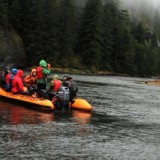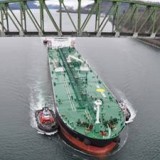From TheTyee.ca – Dec. 20, 2010
by Andrew Nikiforuk
One of these days, Ottawa’s oil patch salesmen might want to sit down with the U.S. military and have a real “man-up” talk.
By any standard, the guys and gals in uniform now make Greenpeace look like the Boy Scouts.
In fact admirals, generals and colonels
have seen the enemy, and it’s oil. They don’t care if the stuff is
bloody or dirty; they just want to get off pricey crude, asap.
They also believe that climate change,
another byproduct of the Oil Age, poses a serious security threat to
civilization, as we know it. Not surprisingly, people call these tough
hombres, “the Green Hawks.”
Around the same time Canada’s political
elites started to dunk their donuts in bitumen, the U.S. military
experienced an energy epiphany in Iraq and Afghanistan. Blood will do
that.
Read full article here



